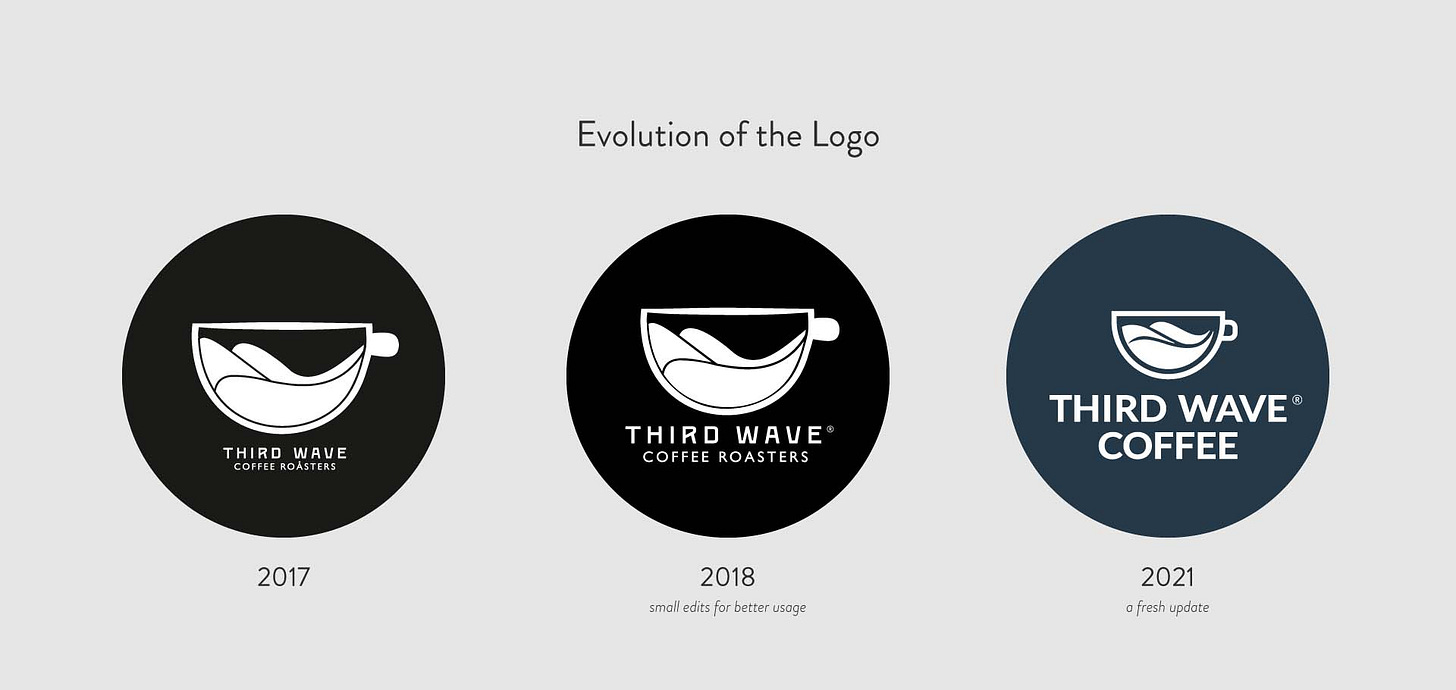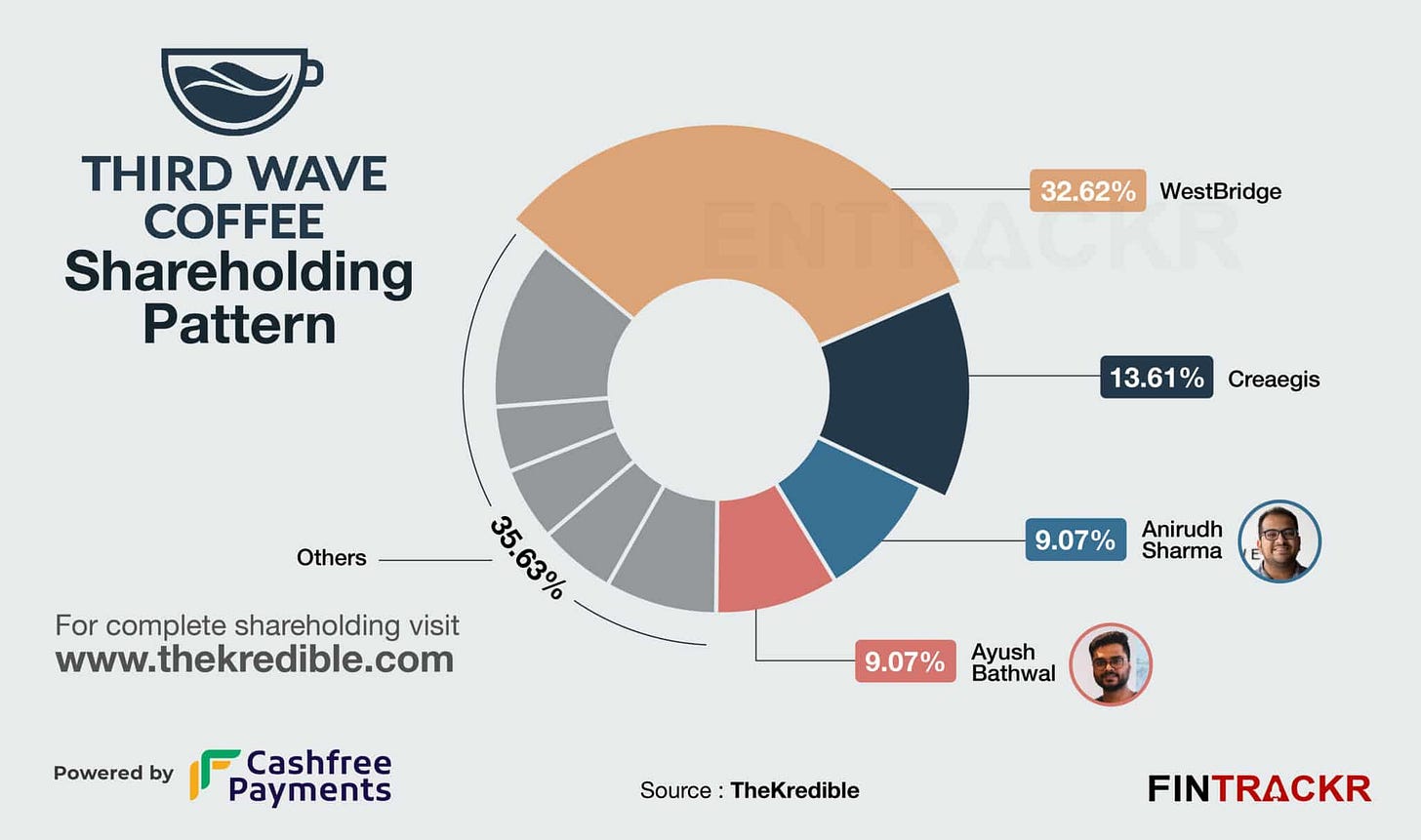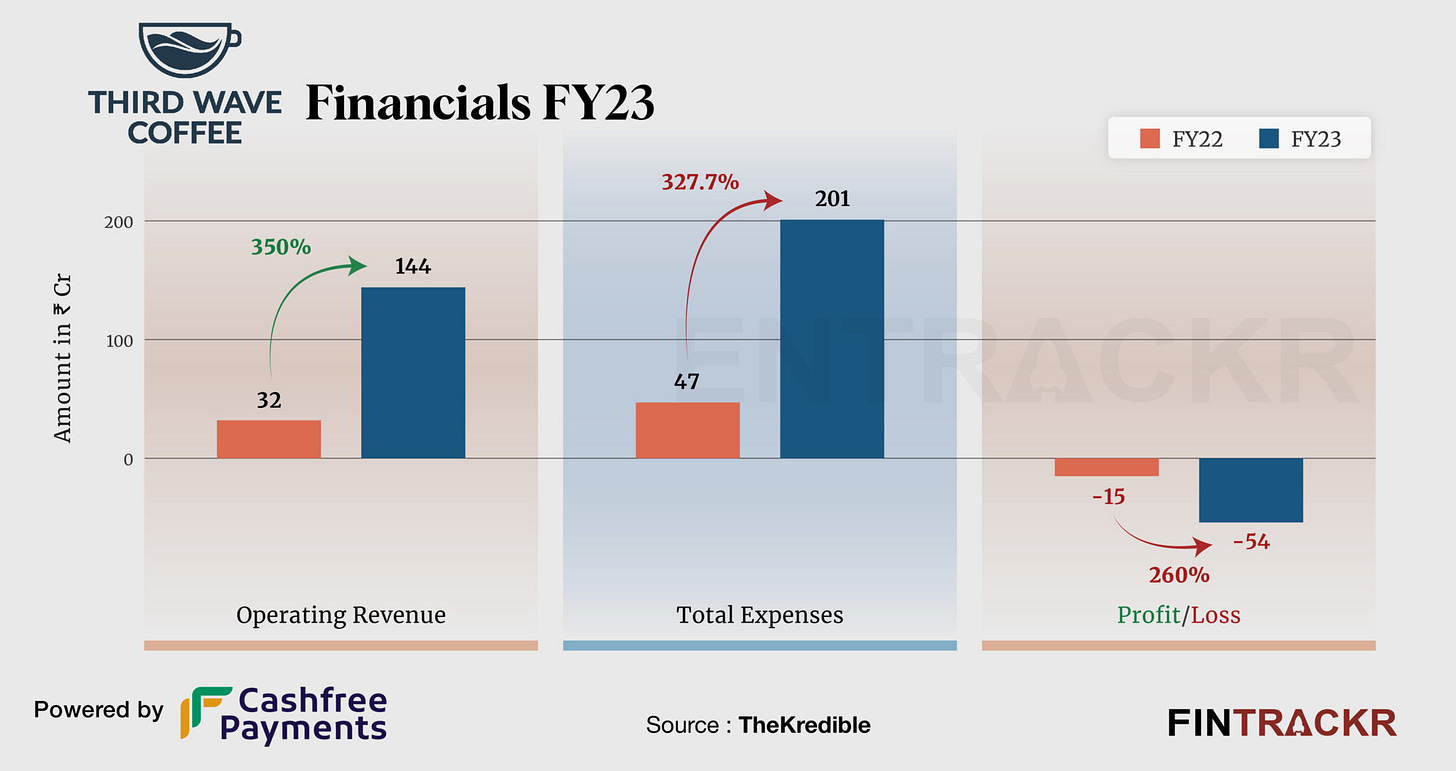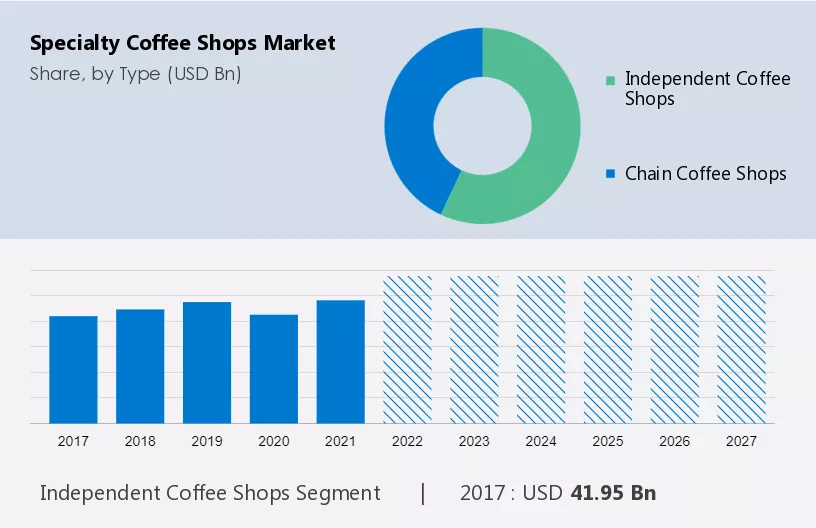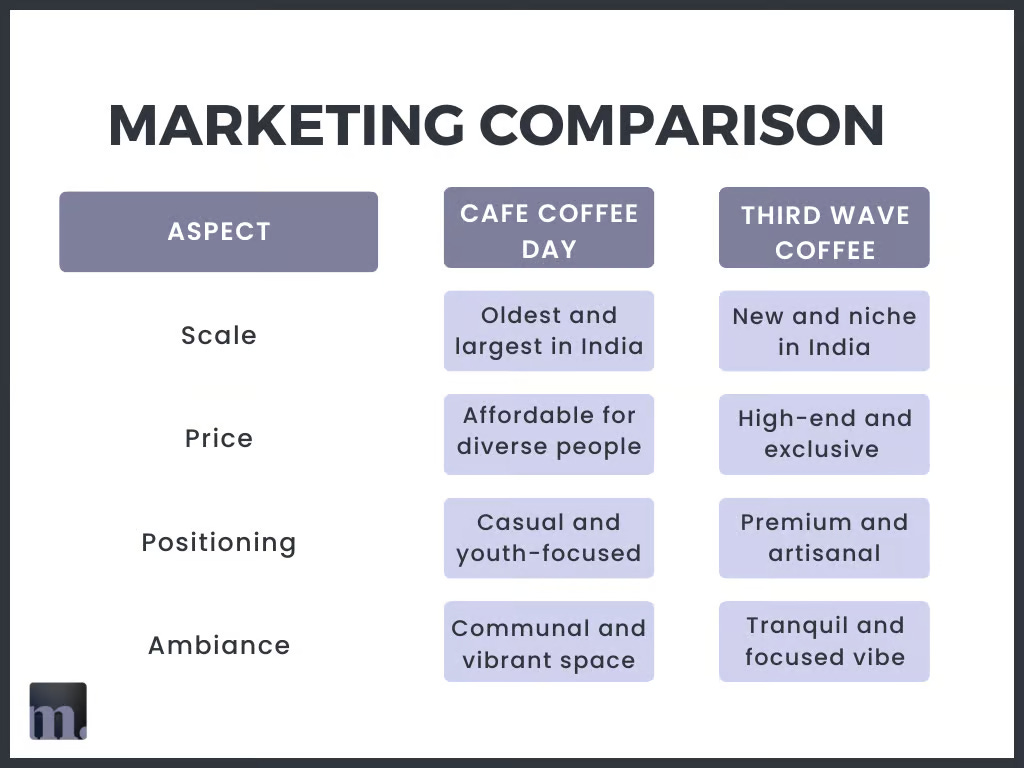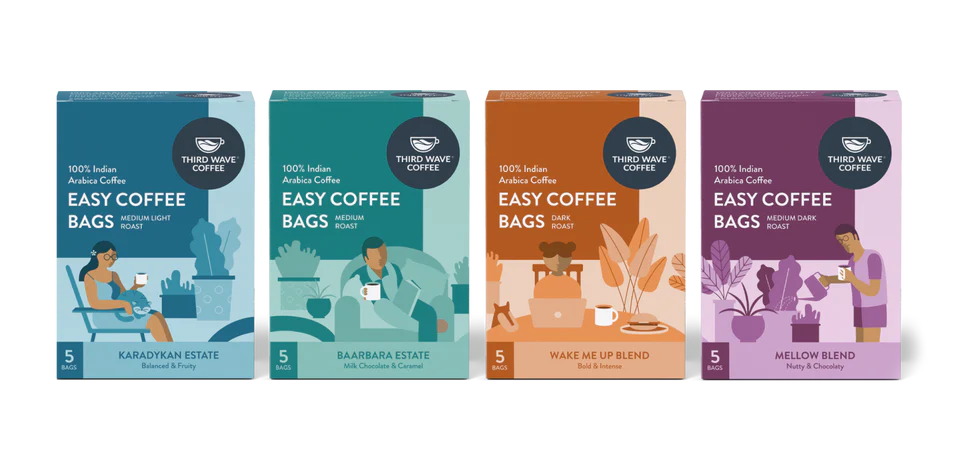Third Wave Coffee: A Comprehensive Business Case Study
1. Introduction
Third Wave Coffee is a prominent player in the specialty coffee market in India, known for its high-quality coffee, artisanal brewing techniques, and community-centric café experience. This case study provides an in-depth analysis of Third Wave Coffee's journey, business model, strategies, challenges, and future prospects.
2. Company Overview
Founders: Sushant Goel, Anirudh Sharma, and Ayush Bathwal
Founded: 2016
Headquarters: Bangalore, India
Industry: Specialty Coffee, Food & Beverage
Core Products: Specialty coffee beans, brewed coffee, café beverages, and brewing equipment
3. Market Analysis
Market Size: The Indian specialty coffee market is growing rapidly, driven by increasing urbanization, rising disposable incomes, and a growing café culture.
Consumer Behavior: Growing preference for premium, high-quality coffee, awareness about coffee origins, and a trend towards artisanal coffee experiences.
Competitors: Blue Tokai Coffee Roasters, Starbucks, Sleepy Owl Coffee, Café Coffee Day, and various local artisanal coffee brands.
4. Business Model
Third Wave Coffee operates on a hybrid model, combining direct-to-consumer (D2C) sales with an extensive network of cafés, focusing on delivering high-quality coffee and a superior customer experience.
Café Network: Establishing a strong presence with strategically located cafés in major cities, offering a community-centric environment.
Direct-to-Consumer: Selling specialty coffee beans and brewing equipment through their online platform and select retail partners.
Subscription Services: Offering subscription plans for regular delivery of freshly roasted coffee beans.
Product Diversification: Expanding product offerings to include a variety of coffee beverages, snacks, and merchandise.
5. Evolution and Growth
Initial Phase: Started with a single café in Bangalore, focusing on high-quality coffee and educating customers about specialty coffee.
Expansion: Rapidly expanded to multiple locations across major Indian cities, building a loyal customer base.
Product Innovation: Introduced cold brews, ready-to-drink beverages, and an expanded food menu to cater to diverse consumer preferences.
Community Engagement: Organized coffee tasting sessions, workshops, and events to engage with the local community.
6. Operational Strategy
Quality Control: Direct sourcing of high-quality coffee beans from Indian coffee farms, ensuring traceability and fair trade practices.
Artisanal Brewing: Focus on small-batch roasting and artisanal brewing techniques to bring out the unique flavors of each coffee origin.
Café Experience: Creating a welcoming and comfortable café environment, with knowledgeable baristas and personalized service.
Supply Chain Management: Efficient supply chain to ensure timely availability of fresh coffee beans and other products across all outlets.
7. Financial Analysis
Funding: Raised capital through angel investors and venture capital firms, including early-stage funding rounds.
Revenue Streams: Sales from coffee beverages, food items, merchandise, subscriptions, and online sales.
Cost Structure: Costs associated with sourcing, roasting, café operations, marketing, and logistics.
8. Marketing and Customer Acquisition
Target Market: Urban coffee enthusiasts, young professionals, and health-conscious consumers.
Marketing Channels: Digital marketing, social media campaigns, influencer collaborations, and events.
Customer Engagement: Building a community through social media interactions, loyalty programs, and educational workshops.
9. Challenges
Market Education: Educating consumers about the value of specialty coffee and differentiating it from commercial coffee.
Supply Chain Risks: Ensuring a stable supply of high-quality coffee beans and managing production logistics.
Competition: Intense competition from established coffee chains and new artisanal coffee startups.
Scalability: Scaling operations while maintaining product quality and customer experience.
10. COVID-19 Impact
The pandemic led to temporary café closures and reduced foot traffic. However, there was a surge in demand for home-brewed coffee and online sales of coffee beans and brewing equipment. Third Wave Coffee adapted by enhancing its e-commerce platform, expanding product offerings, and focusing on delivery and takeaway services.
11. Future Prospects
Geographical Expansion: Expanding to more Indian cities and exploring international markets.
Product Innovation: Introducing new coffee products, ready-to-drink beverages, and expanding the range of brewing equipment.
Sustainability Initiatives: Implementing sustainable practices in sourcing, packaging, and operations to appeal to environmentally conscious consumers.
Digital Transformation: Leveraging technology for personalized customer experiences, data analytics, and operational efficiency.
12. SWOT Analysis
Strengths: Strong brand identity, high-quality products, direct sourcing relationships, and a loyal customer base.
Weaknesses: High operational costs, dependency on specific suppliers, and scalability challenges.
Opportunities: Growing specialty coffee market, increasing consumer awareness of coffee quality, and potential for global expansion.
Threats: Intense competition, supply chain disruptions, and changing consumer preferences.
13. Strategic Recommendations
Enhance Brand Awareness: Invest in marketing campaigns to educate consumers about specialty coffee and build brand recognition.
Expand Product Line: Introduce innovative coffee products and ready-to-drink beverages to cater to diverse consumer preferences.
Strengthen Supply Chain: Diversify sourcing partners and invest in supply chain resilience to mitigate risks.
Focus on Sustainability: Develop and promote sustainable practices in sourcing, production, and packaging to attract environmentally conscious consumers.
Leverage Technology: Enhance the digital shopping experience through personalized recommendations, seamless online ordering, and virtual coffee workshops.
14. Conclusion
Third Wave Coffee has successfully carved out a niche in the Indian specialty coffee market through its focus on quality, community, and innovative products. Despite facing challenges, the company’s strong operational framework, innovative strategies, and commitment to sustainability position it well for future growth. As Third Wave Coffee continues to expand and evolve, its ability to adapt to market dynamics and leverage emerging opportunities will be crucial to maintaining its competitive edge and achieving long-term success.
What The Home School of Business Offers:
Weekly Guest Seminars: Learn from industry student leaders and gain valuable insights.
Business News Letters We Offer:
Business Case Study Series, Scam Series, Leadership Series.Startup Tips Guide Series: Get step-by-step guidance from idea inception to IPO.
Your journey from an idea to IPO starts here!
Visit our website for all Posts: Home School of Business Website
Best Regards,
The Home School of Business Team
Order from Swiggy: Click Here
Order from Zomato : Click Here
Third Wave Coffee Unique-ness : Click Here
Third Wave Coffee Story (Your Story) : Click Here





